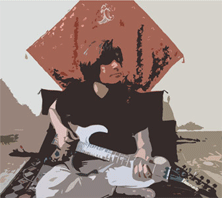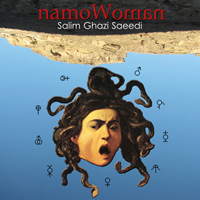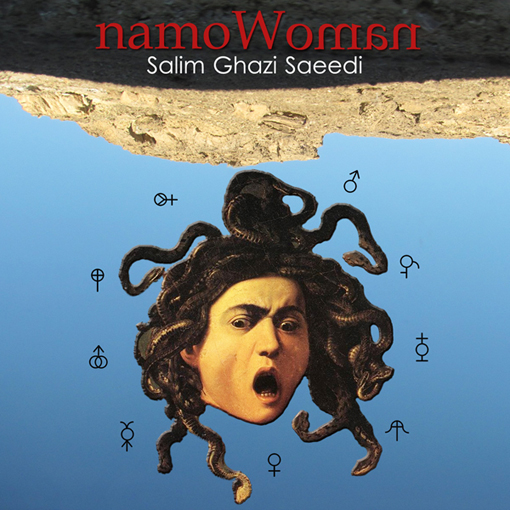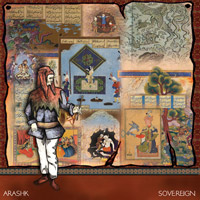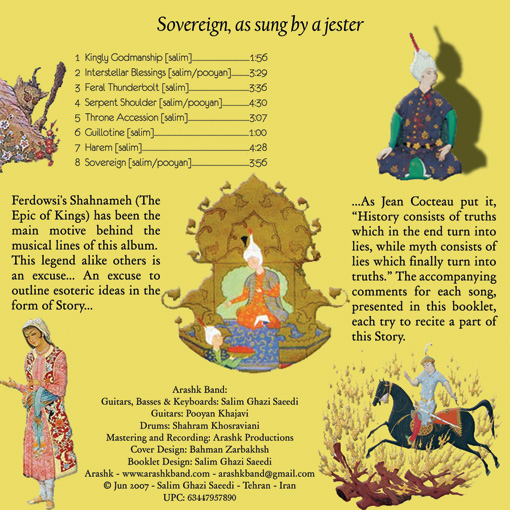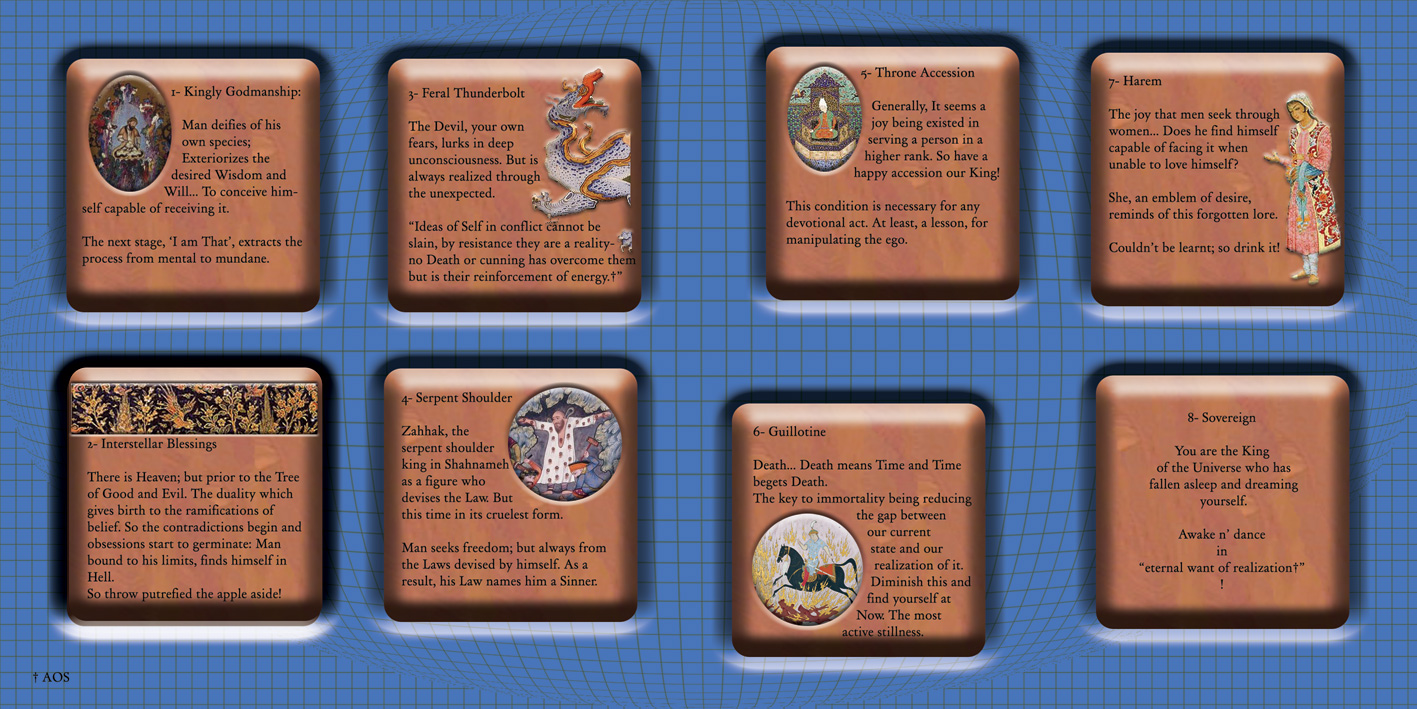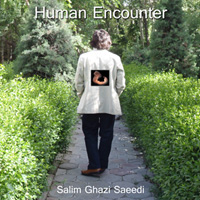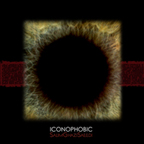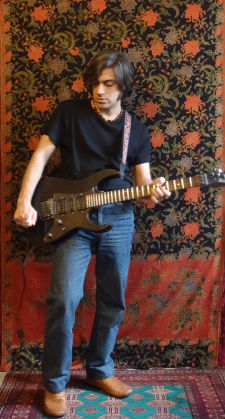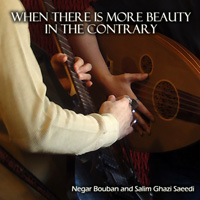“Vacuum fluctuation; I call it originality.” Every now and then, the energy level of the vacuum fluctuates. Spontaneously; and it is a violation of the law of conservation of energy in physics. Maybe the resurgence of Rock in Opposition in Iran obeys similar laws in musics!
Back in 1970s a collective of avant-garde rock bands in Europe “united in their opposition to the music industry that refused to recognize their music” and initiated a music current called “Rock in Opposition” (RIO). I guess no serious RIO listener denies that this genre essentially corresponds with rebellious nature of its composers. Dark, moody and painstaking.
But what is the true motivation behind such views? Social injustice? Poor financial situation of the composer? Artists’ personal and psychological eccentricities? Or maybe merely a pretention to stand out of society to attract attention?
Well sure I am not competent enough to judge above questions. Since I have not been closely in contact with western society’s norms as RIO’s home and even worse I have never been a listener of this genre. But let me examine the case of my own confrontation to RIO:
Being raised within cultural restrictions in Iran that hinder innovation and openmindness, and a child of 1979 Iran-Iraq war, I experimentally started composing music by self-studying. In this situation most interestingly I share an important characteristic with original RIO bands: I was not able to distribute my works in Iran – since this genre is no doubt a reflection of an unrestrained mind. So I started publishing and promoting my works myself – outside Iran. Then among various press coverages like these I became aware of RIO genre for the first time:
“Somebody’s actually making progressive rock music in Iran? And it’s RIO?”
-Iconophobic Review, GEPR, Fred Trafton, Jun 2011 (Read more)
“Saeedi again proves himself to be a very capable composer in Rock in Opposition vein.”
-Human Encounter Review, Vital Weekly #821, Dolf Mulder, Feb 2012 (Read more)
“Rock in Opposition version of The Enid?”
-Iconophobic Review, Progressive Area, CHFAB, Apr 2012 (Read more)
Of course we know that Rock in Opposition is more a historical title than stylistic. But as a musician who has approached this genre involuntarily I guess I could represent an exemplary case to point out some RIO qualities by enumerating my own compositional habits (Critics have discerned RIO in all 5 albums I have composed so far):
- Music Composition
- Music composition as a painful process
While composing I am very irritated and in pain. I have always found improvising on the instrument ecstatic and pleasing but music composing has been painful to me. Maybe because I have to honestly confess to everything.
- Music as a byproduct of creative intent
An artist tries to express himself. The medium is an excuse. So for myself I call music composition an involuntarily byproduct of creativity. Despite composing almost one album for every year in past 6 years I have never had an urge to do so. Maybe because music composition is not my ultimate goal in life.
- Wildly diverse musical influences
As I have said in my biography page, I guess the formation of progressive rock genre could be a consequent of my diversified music listening habit. “Let your mind free, and it becomes progressive!”
- Minimalism: Miniatures of exaggerated feelings
Quoting from myself from a 2012 interview with Arlequins webzine: “I like exaggerated details and very subtle techniques of the instrument” and “I always spend a lot of time making melodies vertically rich”.
And maybe as an eastern habit, I always have also welcomed issuing short statement about my thoughts. Aphorism, as a literal minimalist approach.
- Innovation as a rule
For every musical motive, I choose variations very delicately based on various parameters: It should be innovative, no unnecessary repetition accepted, deeply colorful and emotional.
I may compare this excessive lust for innovation to Outsider Art movement that I have always found fascinating. Of course in order to receive Prog rock lable, a work should not necessarily be that much avant-garde. But sure “knowing no boundaries” is its essential characteristic.
- Composer’s Environment
- Large scale social contradictions: Lawful anarchy or anarchic law?
Regarding law and lawfulness, to my experience Iran has a very paradoxical situation. In a nutshell, a religious country with millions of anarchists. Does Hassan-i Sabbah ring any bell?
- War
As a child of 1979 Iran-Iraq war, I greatly inspired from terror and pains of this human “classic”. I feel war is one reason I have been drawn into music composition.
- No support from music industry
Who would write articles about RIO if a composer like me doesn’t? Every now and then we hear progressive rock festivals cancelling or being held limited around the world more than ever… Needless to say the music industry situation inside Iran with frictions even with simplest forms of rock…
- Composer’s perspective
- Boundary defying thought
I guess information explosion age – by constantly confronting contradictory views and multicultural aspects of human belief – has greatly helped to develop this notion in human beings that everything is conceivable in limitless forms. In composing terms I can translate it into constant effort to bypass the structures and being creative in an unpredictable approach.
- Occult or Futurist views
These views in a way relate to a greater form of “boundary defying thought” and are prevalent among RIO and other closely related genres literature.
- Maniac Feelings
I categorize manic feelings as unconscious motivations behind composing music. For a lengthy discussion check out my blog post “Am I a Maniac?”
From a listener perspective as I became aware of RIO genre and started listening to these bands, I felt an interesting affinity with some the works. As an example when I listened to Vivisection track by Israeli RIO band, Ahvak on Cuneiform’s website I wrote: “I can immediately sympathize with centuries of pain within sounds of these composers”. So let me call the universal affinity with RIO genre, RIO sympathy… Connecting restless souls of music lovers throughout time and place…
